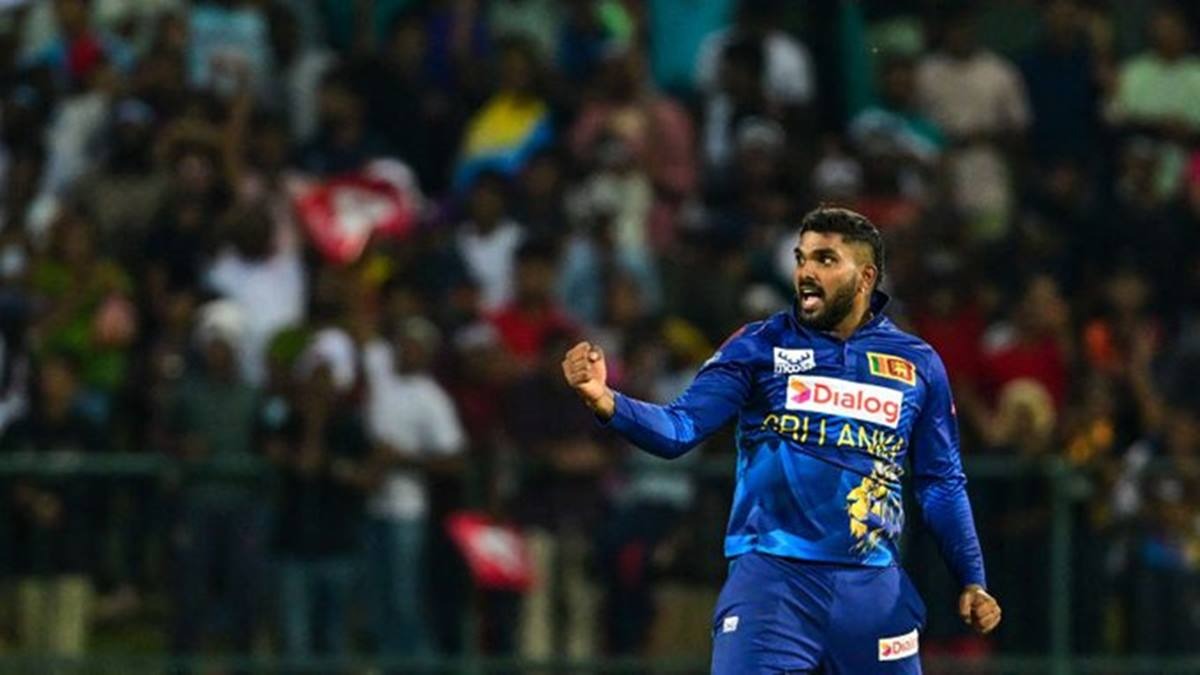 Wanindu Hasaranga Banned: A Controversial Chapter in Sri Lankan Cricket
Wanindu Hasaranga Banned: A Controversial Chapter in Sri Lankan Cricket
Cricket, known for its moments of intense drama and nail-biting finishes, recently witnessed a controversial incident involving Sri Lanka’s captain, Wanindu Hasaranga. The International Cricket Council (ICC) suspended Hasaranga for two matches and imposed a 50% match fee penalty following his protest against a crucial umpiring decision during the last T20 match against Afghanistan.
The Crucial Moment
In a high-stakes encounter, Sri Lanka needed 11 runs to win in the last three balls of the match against Afghanistan. The tension was palpable as all eyes were on the batsman, Kamindu Mendis, who was at the crease. The situation became even more critical due to a questionable umpiring decision.
Umpire’s Controversial Decision
During the match, umpire Hannibal failed to signal a no-ball on a high full-toss, a decision that had a significant impact on the outcome of the game. Despite Mendis standing straight and the ball going above waist height, the umpire did not call it a no-ball, leading to a heated confrontation.
Hasaranga’s Protest
Expressing his dissatisfaction with the umpire’s decision, Hasaranga argued that such incidents should not occur in international matches. He pointed out the potential danger to the batsman if the ball had hit him due to the height. The captain’s protest raised questions about the quality of umpiring in crucial situations.
Post-match Comments
Hasaranga continued to voice his concerns after the match, stating, “International matches should not witness such incidents. If the ball had been a bit higher, it could have hit the batsman on the head. If an umpire cannot see that, then they are not suitable for international cricket. It would be better if someone else officiates.”
ICC’s Action
In response to Hasaranga’s breach of the ICC Code of Conduct, the governing body took swift action. The ICC stated, “Hasaranga has been found guilty of violating Article 2.13 of the ICC Code of Conduct, which relates to the personal abuse of players, player support personnel, umpires, or match referees during an international match. He will be banned for either one Test match or two ODIs or T20Is, whichever comes first.”
Hasaranga’s Justification
Hasaranga defended his actions, emphasizing the safety of players. He argued that if the ball had been slightly higher, it could have resulted in a serious injury to the batsman. The captain maintained that his protest was not about questioning the umpire’s authority but ensuring the well-being of players on the field.
Impact on Future Matches
The suspension of Hasaranga will have repercussions on Sri Lanka’s performance in the upcoming T20 series against Bangladesh. With their captain sidelined, the team will face challenges in maintaining its momentum and strategy.
Cricket Community Reaction
The cricket community, including fans and experts, took to social media to express their opinions on the controversy. The incident sparked debates on the role of umpires, the need for technology in decision-making, and the responsibility of players in maintaining the spirit of the game.
Fair Play in Cricket
The incident involving Hasaranga brings attention to the essence of fair play in cricket. The sport has a rich history of fair competition and respect for opponents. Instances like these remind us of the importance of upholding the integrity of the game.
Umpire’s Role and Responsibilities
Umpires play a crucial role in cricket, ensuring fair play and making critical decisions. The pressure on them during close matches is immense, and controversies like these underline the need for continuous improvement in their decision-making process.
Player-Umpire Relationship
The relationship between players and umpires is delicate and based on mutual respect. Disputes like the one involving Hasaranga can strain this relationship, highlighting the need for effective communication and understanding on both sides.
ICC’s Code of Conduct
The ICC’s Code of Conduct sets the standards for player behavior during international matches. Players are expected to adhere to these guidelines to maintain the spirit of the game and ensure a fair and competitive environment.
In conclusion, the suspension of Wanindu Hasaranga has opened a dialogue on the role of umpires, fair play, and player conduct in international cricket. While the incident was undoubtedly controversial, it provides an opportunity for reflection and improvement within the cricketing community.
 Suspense Crime Sach Ka Dam
Suspense Crime Sach Ka Dam


